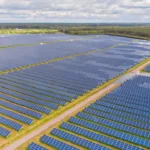The 30th session of the COP30 climate summit, held in Belém, Brazil, marked a defining moment for global climate diplomacy. With record participation from governments, NGOs, scientists, and youth groups, the summit aimed to accelerate global efforts toward limiting temperature rise to 1.5°C. While several new commitments emerged, the conference also revealed persistent divides between developed and developing nations on key climate issues such as fossil fuel phase-out, financial responsibility, and adaptation support.
1. Adaptation Finance Takes Center Stage
One of the most celebrated outcomes of COP30 was the pledge from developed nations to triple global adaptation finance by 2035. This marks a renewed recognition that vulnerable countries — particularly those in Africa, Asia, and the Pacific — require significant financial assistance to cope with intensifying climate impacts such as droughts, floods, and rising sea levels.
While the announcement was welcomed, critics noted that details remain unclear. The pledge lacks a concrete funding mechanism, timelines, or enforcement framework. Many developing countries emphasized that past promises of climate finance have often gone unmet, urging donor nations to convert words into measurable results. Nevertheless, the renewed global focus on adaptation was a positive shift from previous conferences that mainly emphasized emission reductions.
2. Fossil Fuel Phase-Out: Still a Controversial Topic
Despite strong momentum from civil society and several progressive governments, COP30 failed to deliver a decisive commitment to phase out fossil fuels. Negotiators were divided over the inclusion of language demanding a full fossil fuel exit in the final agreement. As a compromise, the final declaration referred only to the need for a “gradual transition away from unabated fossil fuels,” which many observers viewed as too weak and open to interpretation.
This ambiguity disappointed climate activists and small island nations, who had called for a clear timeline to end coal, oil, and gas production. However, some participants argued that the language was a necessary diplomatic balance to keep all parties engaged, given that energy-exporting nations remain heavily dependent on fossil fuel revenues.
3. Uneasy Global Unity and Political Tensions
Brazil, as the host nation, had hoped to position COP30 as a turning point for global unity and ambition. Yet negotiations revealed deep-seated tensions between industrialized economies and emerging markets. Wealthy nations pushed for stricter emissions targets, while developing countries emphasized the need for financial and technological support before making new commitments.
Geopolitical realities also influenced the tone of the discussions. Some delegations accused advanced economies of double standards — urging others to reduce emissions while continuing to approve new fossil fuel projects at home. Despite these disagreements, the summit managed to produce a consensus document, preventing a complete diplomatic breakdown.
4. Forests and Biodiversity Gain Renewed Attention
As a country that hosts much of the Amazon rainforest, Brazil placed forest conservation high on the COP30 agenda. The summit saw the launch of a new global initiative to protect and restore critical forest ecosystems, with a funding target of over $9 billion by 2030. The program aims to incentivize sustainable forest management, halt deforestation, and enhance carbon storage through reforestation.
However, activists pointed out that the global forest pledge still lacks clear accountability measures. Many also urged for stronger recognition of Indigenous peoples as primary stewards of forest ecosystems. Indigenous representatives attended COP30 in record numbers, advocating for legal protection of ancestral lands and for their voices to be included in all forest-related policymaking.
5. Scientific Integrity and Trust in Climate Data
One unexpected debate at COP30 centered on the role of scientific institutions. The final text no longer explicitly reaffirmed the Intergovernmental Panel on Climate Change (IPCC) as the sole authoritative source of climate science. Instead, it acknowledged a wider range of scientific and policy inputs. While this broadening may encourage innovation, many experts cautioned that it could also dilute scientific consensus and make global policy coordination more difficult.
Despite the controversy, scientific data continued to underpin the urgency of climate action. New analyses presented during the summit confirmed that global emissions remain at record highs, with the world on track to exceed 2.4°C of warming by the end of the century unless drastic measures are taken immediately.
6. Brazil’s Role and Regional Leadership
Brazil used the platform of COP30 to reassert its leadership on climate and environmental diplomacy. The country highlighted its recent achievements in reducing Amazon deforestation and its plans to expand renewable energy capacity through hydropower, biofuels, and solar investments. President Luiz Inácio Lula da Silva framed Brazil’s vision as one of “sustainable development with social inclusion,” emphasizing that climate goals must be compatible with poverty reduction and economic growth.
Latin American nations also coordinated regional efforts, calling for more flexible debt arrangements and green financing instruments that could free up resources for climate investments. This collective stance strengthened the Global South’s position within negotiations, showing that regional solidarity remains a powerful force in climate diplomacy.
7. Civil Society’s Stronger Influence
Public engagement at COP30 reached unprecedented levels. Civil society groups, youth movements, and private-sector innovators all played active roles in shaping discussions. Massive demonstrations outside the summit venue reminded leaders that the public expects faster and fairer climate action. Within the conference, numerous side events showcased sustainable technologies, green startups, and educational programs focused on energy transition and climate resilience.
This growing participation from non-state actors reflects a shift in the climate movement. Governments are no longer the sole decision-makers; businesses, investors, and communities are increasingly accountable for how they contribute to — or hinder — global climate goals.
8. Key Lessons and the Road Ahead
- Financial promises must turn into real delivery. Pledges without implementation mechanisms risk eroding trust among nations.
- Fossil fuel transition remains the defining challenge. A clear and equitable global framework is needed to ensure an orderly phase-out while supporting affected economies.
- Inclusion builds legitimacy. Indigenous voices, youth, and marginalized groups must have a genuine role in shaping climate policy.
- Science remains the backbone of action. The world needs consistent, evidence-based decision-making to avoid political distractions and misinformation.
- Regional leadership can drive progress. Countries like Brazil, Indonesia, and Kenya demonstrate that emerging economies can lead through innovation and example.
Conclusion
The COP30 climate summit in Brazil delivered both hope and frustration. While the renewed focus on adaptation finance, forest protection, and inclusion was a step forward, the lack of a clear fossil fuel phase-out strategy exposed the limitations of global consensus-building. The path to net-zero remains steep, but the progress made in Belém underscores that collective action — even when imperfect — is still possible.
As attention now shifts toward COP31, the world’s expectations will grow even higher. Governments must prove that pledges made in Brazil can translate into real change on the ground, ensuring that the next summit delivers not just promises, but measurable progress for a sustainable future.



